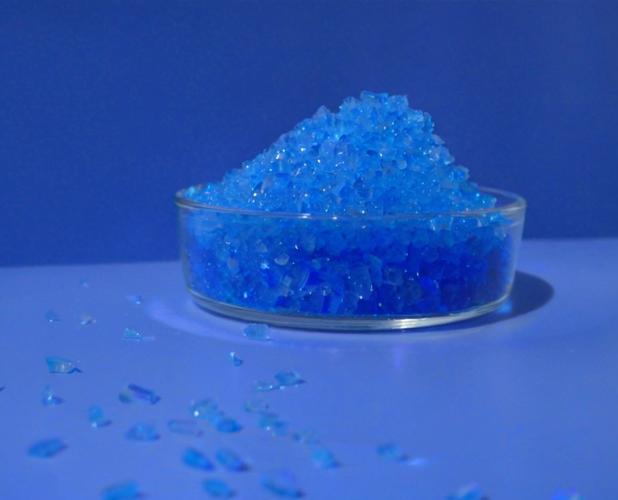
Copper sulfate, also known as bluestone or blue vitriol, is a chemical compound with the formula CuSO4. It is available in various forms, including anhydrous and hydrated forms, with the pentahydrate being the most common. The compound is a blue crystalline solid that is highly soluble in water.
In agriculture, copper sulfate is used as a fungicide and as a micronutrient for plants. It is a key ingredient in the Bordeaux mixture, which is used to control fungus on grapes, melons, and other berries. It is also used as a molluscicide for the destruction of slugs and snails, particularly the snail host of the liver fluke.
In the industrial sector, copper sulfate is used in the leather industry, in hair dyes, and for processing textiles. It is also used in pyrotechnics as a green colorant. In the chemical industry, it is used as a catalyst for the acetylation of alcohols and phenols under solvent-free conditions.
Regarding safety, copper sulfate is toxic and can cause irritation to the skin, eyes, and respiratory tract upon contact. It is important to handle copper sulfate with care, using protective equipment such as gloves and goggles. When ingested in large quantities, it can cause health issues, so it is important to follow safety guidelines and regulations.
For storage, copper sulfate should be kept in a cool, dry place to prevent deliquescence. It is important to store it away from moisture and in a well-sealed container to maintain its quality and effectiveness for various applications.
